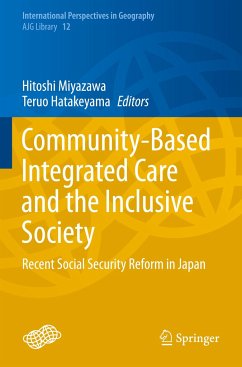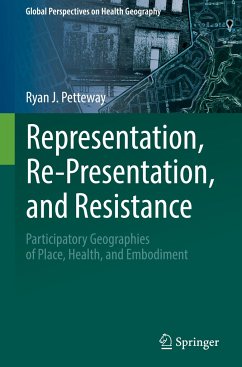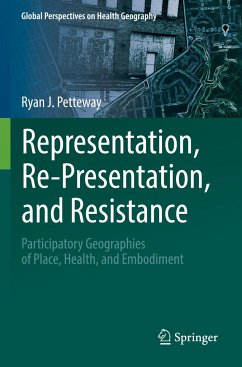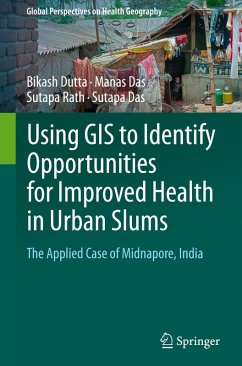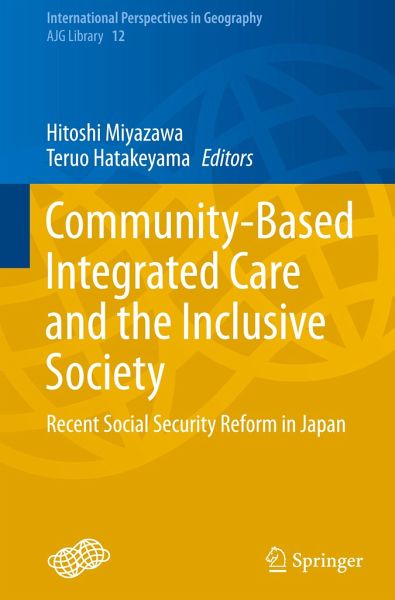
Community-Based Integrated Care and the Inclusive Society
Recent Social Security Reform in Japan
Herausgegeben: Miyazawa, Hitoshi; Hatakeyama, Teruo

PAYBACK Punkte
49 °P sammeln!
This book discusses the building of comprehensive community support systems, which constitutes a key issue in social security reforms in Japan. The book comprises three parts: (I) Mapping Social Security in Japan, (II) Community-Based Integrated Care Systems in Japan, and (III) A Prospect of Community-Based Inclusive Society in Japan. The chapters in this book were composed on the basis of research into community-based integrated care systems and community-based inclusive society, conducted by members of the Association of Japanese Geographers' Study Group "Regional Issues Related to the Birth...
This book discusses the building of comprehensive community support systems, which constitutes a key issue in social security reforms in Japan. The book comprises three parts: (I) Mapping Social Security in Japan, (II) Community-Based Integrated Care Systems in Japan, and (III) A Prospect of Community-Based Inclusive Society in Japan. The chapters in this book were composed on the basis of research into community-based integrated care systems and community-based inclusive society, conducted by members of the Association of Japanese Geographers' Study Group "Regional Issues Related to the Birthrate Decline and Population Aging." Choosing local governments with different regional characteristics, the authors conducted empirical research to uncover the characteristics of comprehensive community support systems, building processes, and challenges in the respective local governments. Non-Japanese readers will acquire an understanding of the characteristics of social security and the trendsof the reforms in Japan. To support its use as a reference book, chapters in Part I include numerous maps and figures with the themes of welfare, medical care, and health levels in Japan.





